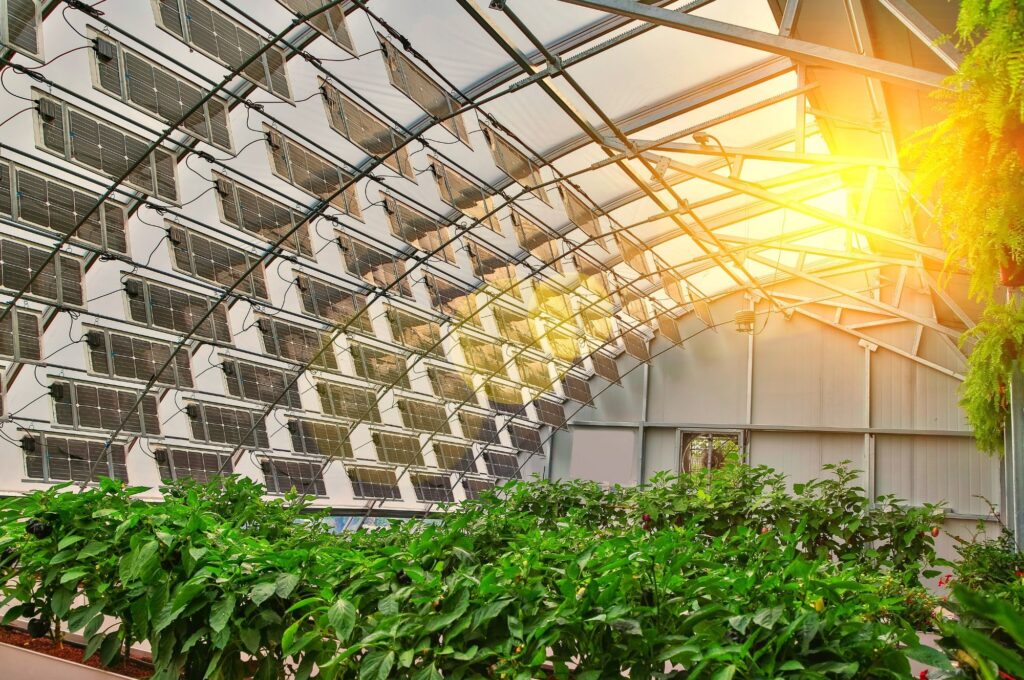The United Arab Emirates (UAE) is intensifying its commitment to sustainable agriculture and food security through innovative AgTech initiatives. A significant development in this endeavor is the recent Musataha agreement between Silal, Abu Dhabi’s leading agri-food and technology company, and KEZAD Group, the largest operator of integrated economic zones in the UAE. This partnership aims to establish two cutting-edge agricultural projects in Al Ain Industrial City, focusing on sustainable farming and enhancing local food production.
Table of Contents
ToggleBackground Context
The UAE faces considerable agricultural challenges due to its arid climate, limited arable land, and scarce water resources. These factors have historically led to a heavy reliance on food imports, making the nation vulnerable to global supply chain disruptions. In response, the UAE launched the National Food Security Strategy 2051, aiming to position the country among the top in the Global Food Security Index by implementing resilient agricultural practices and leveraging modern technologies to boost local production.
The Agreement: Key Details
Under the Musataha agreement, Silal and KEZAD Group will develop two AgTech projects in Al Ain Industrial City:
- Indoor Berry Cultivation: In collaboration with Iyris, this project will establish a 50,000-square-meter indoor farm dedicated to cultivating premium berries. This initiative aims to overcome the challenges of producing high-quality crops in the UAE’s desert climate.
- Controlled-Environment Agriculture: Spanning 100,000 square meters, this project will utilize advanced controlled-environment agriculture technologies to grow high-value crops. This approach significantly reduces water usage, minimizes carbon emissions, and ensures year-round yields, aligning with the UAE’s goals for food sustainability and environmental stewardship.
These initiatives represent a strategic move towards sustainable agriculture, aiming to reduce the UAE’s dependence on food imports and enhance self-sufficiency. By integrating advanced technologies, the projects seek to address the unique challenges of farming in arid environments, contributing to the nation’s broader food security objectives.
Technological Innovation in AgTech
The UAE’s AgTech projects are leveraging advanced technologies to revolutionize agriculture in arid environments:
- Controlled-Environment Agriculture (CEA): Utilizing state-of-the-art CEA technologies, these projects create optimal growing conditions within indoor facilities, enabling precise control over factors such as temperature, humidity, and light. This approach allows for the cultivation of high-quality crops year-round, regardless of external climatic conditions.
- Water Conservation Techniques: Implementing innovative irrigation systems and water recycling methods, the projects aim to drastically reduce water consumption—a critical consideration in the UAE’s water-scarce environment. These methods ensure sustainable water use while maintaining crop health and productivity.
- Sustainable Energy Integration: By incorporating renewable energy sources, such as solar power, the projects minimize carbon emissions and reduce reliance on non-renewable energy. This integration supports the UAE’s broader environmental sustainability goals.
Economic and Environmental Impact
The implementation of these AgTech projects is poised to yield significant economic and environmental benefits:
- Economic Benefits: By enhancing local food production, the UAE can reduce its dependence on imports, leading to improved food security and economic resilience. The projects are expected to create job opportunities in the agricultural sector, stimulate related industries, and contribute to the diversification of the national economy.
- Environmental Benefits: The adoption of water-efficient technologies and renewable energy sources aligns with the UAE’s commitment to environmental stewardship. These practices contribute to the conservation of vital natural resources and the reduction of the agricultural sector’s carbon footprint.

Stakeholder Perspectives
Key stakeholders have expressed strong support for these initiatives:
- Salmeen Alameri, CEO of Silal: “These flagship initiatives underscore our commitment to advancing the UAE’s agricultural sector. By integrating cutting-edge technologies with sustainable practices, we aim to foster a thriving local food production ecosystem, enhance food security, and strengthen the country’s self-sufficiency efforts.”
- Abdullah Al Hameli, CEO Economic Cities & Free Zones, AD Ports Group: “This collaboration underscores our commitment to fostering innovation and creating ecosystems that empower such groundbreaking ventures in Abu Dhabi in line with our wise leadership vision for food security.”
These perspectives highlight a unified dedication to leveraging innovation and technology to transform the UAE’s agricultural landscape, ensuring sustainable and secure food production for the future.
Broader Implications for the UAE and Beyond
The UAE’s commitment to AgTech innovation extends its influence beyond national borders, positioning the nation as a leader in sustainable agriculture within arid regions. By investing in advanced agricultural technologies, the UAE is setting a precedent for other countries facing similar environmental challenges.
- Regional Leadership: The UAE’s initiatives serve as a model for neighboring countries in the Middle East and North Africa (MENA) region, which share comparable climatic conditions and food security concerns. The country’s success in implementing AgTech solutions demonstrates the viability of high-tech agriculture in desert environments, encouraging regional collaboration and adoption of similar strategies.
- Global Influence: Through partnerships and knowledge exchange, the UAE contributes to global efforts in addressing food security and sustainable agriculture. The nation’s experiences and innovations offer valuable insights for countries worldwide grappling with the impacts of climate change on agriculture.
Conclusion
The UAE’s strategic investments in AgTech projects, exemplified by the collaboration between Silal and KEZAD Group, underscore a robust commitment to transforming agriculture in arid environments. By integrating advanced technologies and sustainable practices, these initiatives aim to enhance local food production, reduce environmental impact, and strengthen food security. The UAE’s leadership in this arena not only addresses national challenges but also offers a blueprint for global agricultural innovation in the face of climate change.




